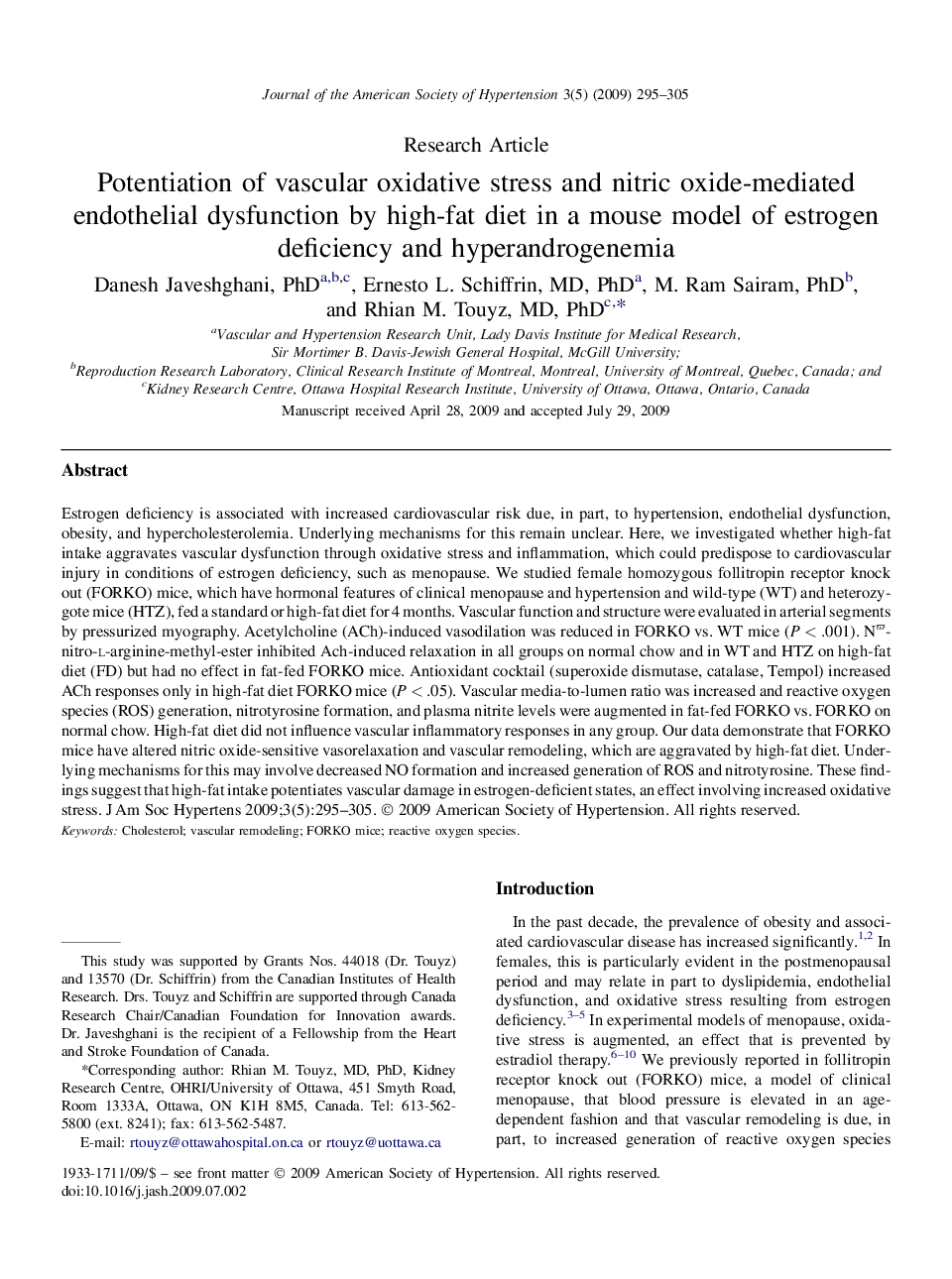| کد مقاله | کد نشریه | سال انتشار | مقاله انگلیسی | نسخه تمام متن |
|---|---|---|---|---|
| 2957058 | 1578083 | 2009 | 11 صفحه PDF | دانلود رایگان |

Estrogen deficiency is associated with increased cardiovascular risk due, in part, to hypertension, endothelial dysfunction, obesity, and hypercholesterolemia. Underlying mechanisms for this remain unclear. Here, we investigated whether high-fat intake aggravates vascular dysfunction through oxidative stress and inflammation, which could predispose to cardiovascular injury in conditions of estrogen deficiency, such as menopause. We studied female homozygous follitropin receptor knock out (FORKO) mice, which have hormonal features of clinical menopause and hypertension and wild-type (WT) and heterozygote mice (HTZ), fed a standard or high-fat diet for 4 months. Vascular function and structure were evaluated in arterial segments by pressurized myography. Acetylcholine (ACh)-induced vasodilation was reduced in FORKO vs. WT mice (P < .001). Nϖ-nitro-l-arginine-methyl-ester inhibited Ach-induced relaxation in all groups on normal chow and in WT and HTZ on high-fat diet (FD) but had no effect in fat-fed FORKO mice. Antioxidant cocktail (superoxide dismutase, catalase, Tempol) increased ACh responses only in high-fat diet FORKO mice (P < .05). Vascular media-to-lumen ratio was increased and reactive oxygen species (ROS) generation, nitrotyrosine formation, and plasma nitrite levels were augmented in fat-fed FORKO vs. FORKO on normal chow. High-fat diet did not influence vascular inflammatory responses in any group. Our data demonstrate that FORKO mice have altered nitric oxide-sensitive vasorelaxation and vascular remodeling, which are aggravated by high-fat diet. Underlying mechanisms for this may involve decreased NO formation and increased generation of ROS and nitrotyrosine. These findings suggest that high-fat intake potentiates vascular damage in estrogen-deficient states, an effect involving increased oxidative stress.
Journal: Journal of the American Society of Hypertension - Volume 3, Issue 5, September–October 2009, Pages 295–305